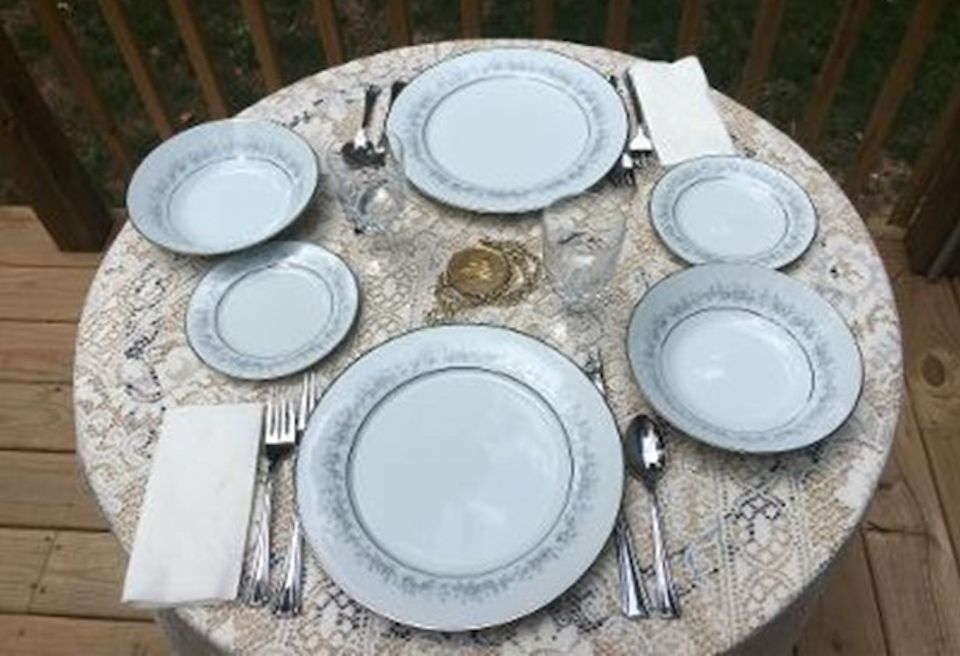Glenn Wagner shares the life-changing impact of hospitality as taught in the Bible and experienced in real life. How can you share the gift of hospitality?
GLENN M. WAGNER
Michigan Conference Communications
The 2020 Summer Olympic Games, postponed for a year by a global pandemic, will finally be held in Tokyo, Japan, July 23 – August 8, 2021. This quadrennial competition traces its origins to 776 BC to Olympia in Greece. This year’s Olympics will feature 28 sports, 38 disciplines, and 339 different events. Eleven thousand and ninety-one athletes from 206 countries are expected to participate. One hundred and fifty-six gold medals will be awarded this year to the very best. Three out of five adults in the United States are expected to tune in to watch some of the games on TV, the internet, or streaming services. The 2016 summer Olympic Games in Rio de Janeiro were watched worldwide by 3.6 billion people. Clearly, Japan will be hosting the world during those 17 days, virtually and in person.
The performances of past Olympic champions are enshrined in memories. I recall the historical contributions of Olympian Jessie Owens and Jim Ryan, Dick Fosbury, Usain Bolt, Simone Biles, Mary Lou Retton, Michael Phelps, Mark Spitz, Edwin Moses, Nadia Comaneci, and Greg Louganis. Which Olympians have inspired you with their gold medal performances?
Events, even more memorable and transformative for me than the Olympics, have involved unexpected experiences of extraordinary hospitality.
Hospitality is an important virtue praised in the Bible. In his letter to the Romans (12:13), the Apostle Paul, in the process of listing many of the qualities of a faithful life, urges, “Practice hospitality.” Jesus’ disciple Peter also encourages followers of Jesus to “Practice hospitality ungrudgingly to one another” (1 Peter 4:9). The author of Hebrews (13:2) offers one of the most oft-quoted reasons for making hospitality a priority practice, “Do not neglect to show hospitality to strangers, for thereby some have entertained angels unawares.”
Jesus showed us his enduring example of gracious hospitality when he stooped to wash his disciples’ feet, assuming the role of a humble servant at his last supper with them before his crucifixion. He instructed them lest they miss the lesson, “As I have done for you, so you also should do for one another” (John 13:15). By washing his disciples’ feet, Jesus set the gold standard for hospitality as an act of humble service to others.
If I could award gold medals for the transformative impact of hospitality on my life, here are four experiences of wonderful hospitality that still inspire me. I hope these examples will prompt you to recall champions in your life who have influenced you to improve your practice of hospitality. For followers of Jesus, hospitality is an important ministry of grace. Churches are moving toward in-person worship and renewing community after emerging from a prolonged pandemic. Thus, hospitality is a ministry of heightened importance.

1973 — Mr. and Mrs. Ayyub. Their son, Afif, was my roommate at the American University of Beirut during my Junior Year abroad study in Lebanon. Afif invited me to his Sunni Muslim family’s Beirut apartment one weekend for an overnight. The Ayyubs served a delicious feast for dinner with the entire family. Later, when it came time for bed, Afif showed me to “my room,” furnished with a comfortable double bed and clean sheets. In the morning, I got up early after a great night’s sleep and went downstairs, where I was surprised to find the entire Ayyub family still sleeping together on the hard floor of the living room. I learned then that the Ayyubs had honored my visit with sacrificial hospitality by letting me sleep in their only bed, in the only bedroom in the apartment. Their act of sacrificial grace has never been forgotten.
1979-1986 – Emerson Messimore. Emerson was the head usher and captain of the Sunday morning welcoming team at Faith United Methodist Church in Freeport, IL, and Sunday morning fixture every week outside the main entrance door to the sanctuary of my first pastoral appointment where I served as a green associate learning ministry. Emerson had been on the job for 20 years and knew the importance of organization, teamwork, faithfulness, and graciousness. He recruited 12 teams of ushers to work on Sunday mornings for one month each per year. He ran the annual usher orientation program to review the basics of safety, welcome, and hospitality. He knew most of the parishioners by name and circumstance. He knew how to offer a genuine welcome with a handshake, smile, hug where appropriate, and engagement in conversation as an active listener. Newcomers were invited to sign the visitor’s book and were thanked by name after the service with, “Thank you for coming; I hope you will join us again next week.” Emerson coordinated information about first-time visitors with members of the apple pie baking and delivery team that baked pies each Sunday after church and then delivered them fresh from the oven in the early afternoon on Sunday to the homes of first-time visitors as a thank you for their visiting. A remarkable percentage of those first-time visitors became long-time committed disciples. I still remember with gratitude Emerson’s commitment to hospitality.
1997 — Phil — It was a weekend over spring break when someone else was filling the pulpit at Community United Methodist Church in North Muskegon. Nancy and I took a needed vacation with our two children to Detroit to see the sights. On Sunday morning, we decided to attend Metropolitan UMC for worship because we had heard about their renowned pastor, Dr. William K. Quick, who held many leadership posts in our denomination, including Associate General Secretary for the World Methodist Council.
In the days before GPS directional systems, we got lost on our way from our motel to the church and had to find a gas station to ask for additional directions. Stoplights further delayed us. We arrived late to worship. The parking lot was full of cars and empty of people. We found a space to park far away from the building and began to make our way toward the church. We were anxious about being late and not knowing what to expect. The uniformed security guard walked cheerfully over to greet us by our car and welcomed us with a bright smile. He asked our names. He immediately repeated them with thanks for our coming, praise for our wonderful children, and compliments for our faithfulness. His name was Phil, and he offered us helpful direction into the church, escorted us in, and introduced us by name to both the greeter and the head usher. They discreetly helped us to enter the sanctuary and find a seat during a hymn. The sanctuary was spectacular, the preaching inspirational, the children’s sermon perfect, and the choir great. The people were polite. After the service, we exited quickly, the first family out the door and eager to get on with the rest of our day with our children. No one noticed us as we slipped away except Phil, who greeted us again by name with a smile as we left the building. He escorted us to our car, asking us how we liked the service. He praised us again for our parenting, thanked our children, and asked what inspired us to come to church. He invited us to return if we were ever back in Detroit on a Sunday. I decided that even though our experience in church that morning was perfect in every way after our late arrival, if I ever returned to worship at Metropolitan UMC, it would not be because of any of the aforementioned virtues. I would return because of the hospitality of a welcoming man named Phil. Because he did his duty in the parking lot with genuine warmth, coming and going outside the church building was exemplary. I will never forget how he lessened anxiety and heightened my awareness of the primary importance of hospitality to effective ministry.
1997 — Ruth Duck. Now retired, this professor of worship taught for 27 years at Garrett-Evangelical Theological Seminary. A gifted hymn writer, Ruth shared her thoughts on the importance of hospitality and the inspiration that moved her to write a hymn on the subject during a leadership conference I attended 24 years ago in California. Ruth recalled sitting through a prolonged and contentious church business meeting attended by congregational leaders. The meeting, held in the church fellowship hall, ran overtime. The heated debate was on the subject of the church’s position on important issues relating to inclusion. When the meeting was over, the church leaders left in an agitated state without reaching an agreement. Then, they were greeted in the adjoining hallway by the humbling sight of a line of local persons who had been forced to patiently wait with their hunger in the hall until the meeting’s conclusion for a meal from the soup kitchen that was also scheduled for the same fellowship hall space.
Ruth Duck was moved by the difficult church argument and the long line of homeless persons waiting to eat. She said she remembered how Jesus had humbled himself in a contentious moment in his life. He washed his disciples’ feet and then continued to break bread with his friends, including Judas, who betrayed him, Peter, who denied him, and Thomas, who doubted him. Inspired by her belief in the amazing grace of Jesus, Ruth Duck wrote what has become my favorite hymn about hospitality, “So build us a table and tear down the wall. Christ is our host. There is room for us all!”
Walls mark our bound’ries by Ruth Duck, music by Jim Strathdee
Verse 1
Walls mark our bound’ries
and keep us apart;
walls keep the world
from our eyes and our heart.
Tables are round,
making room for one more,
welcoming friends
we had not known before.
Refrain
So build us a table
and tear down the wall!
Christ is our host.
There is room for us all!
Build us a table
and tear down the wall!
Christ is our host … There is room for us all!
Verse 2
Walls make us sure
who is in and who’s out;
walls keep us safe
from all question and doubt,
But at a table
in open exchange
new ties are formed
as our lives rearrange. (Refrain)
Verse 3
Once we were strangers, divided, alone.
hate and distrust
built a wall
stone by stone.
Now at a table
the bread that we share
joins us to Christ
in a circle of care. (Refrain) *
Prayer: God, we are grateful for the sacrificial way you have included each of us in your circle of divine hospitality. Lest we ever forget to practice hospitality, thank you for the lessons of scripture and the example of Jesus that inspire us to live with a gracious and welcoming spirit. Thank you also for the life-changing influence of others who have blessed us with their own gold medal hospitality. Help each of us, as humble servants of yours, to grow like that, too. In Jesus’ name. Amen
* “Walls Mark Our Bound’ries” from Circles of Care, words by Ruth Duck; copyright © 1996 The Pilgrim Press. Lyrics are used here by permission. All rights reserved. This song is also known as “Build Us A Table. Music to “Walls Mark Our Bound’ries” is composed by Jim Strathdee. This is a link to a sing-along video to the song from Jim and Jean Strathdee’s website for strathdeemusic.com. The Stathdees are offering this and 150 other sing-along video’s on their site for use by churches during worship free of charge, provided churches report their use to One License or CCLI. In addition, a YouTube recording of this song by Jim and Jean Strathdee from their CD, Pieces of our Lives, is available for listening here.
Last Updated on October 31, 2023

